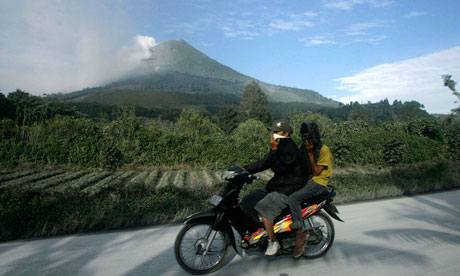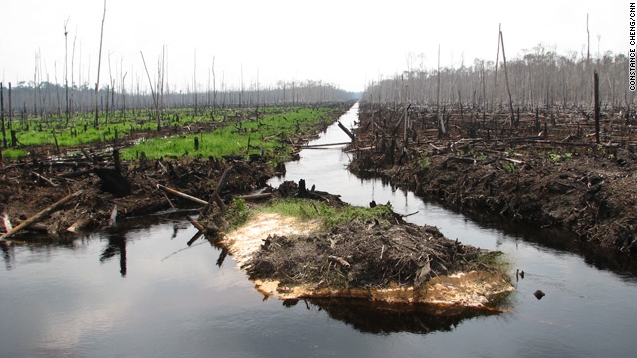Volcano erupts in Indonesia forcing thousands from homes

Villagers watch as a plume of smoke emerges from Mount Sinabung. Photograph: Tarmizy Harva/Reyters
(Reuters) — A volcano has erupted on the Indonesian island of Sumatra for the first time in four centuries, sending smoke 1,500 metres into the air and prompting the evacation of thousands of residents.
There are no reports of casualties so far, and aviation in the area is unaffected.
Mount Sinabung, in the north of Sumatra, began erupting around midnight after rumbling for several days. Lava was overflowing from its crater, the head of Indonesia’s vulcanology centre told Reuters news agency. The agency has placed the volcano on red alert, its highest level.
Read moreIndonesia: Sumatra Volcano Erupts For The First Time In Four Centuries




